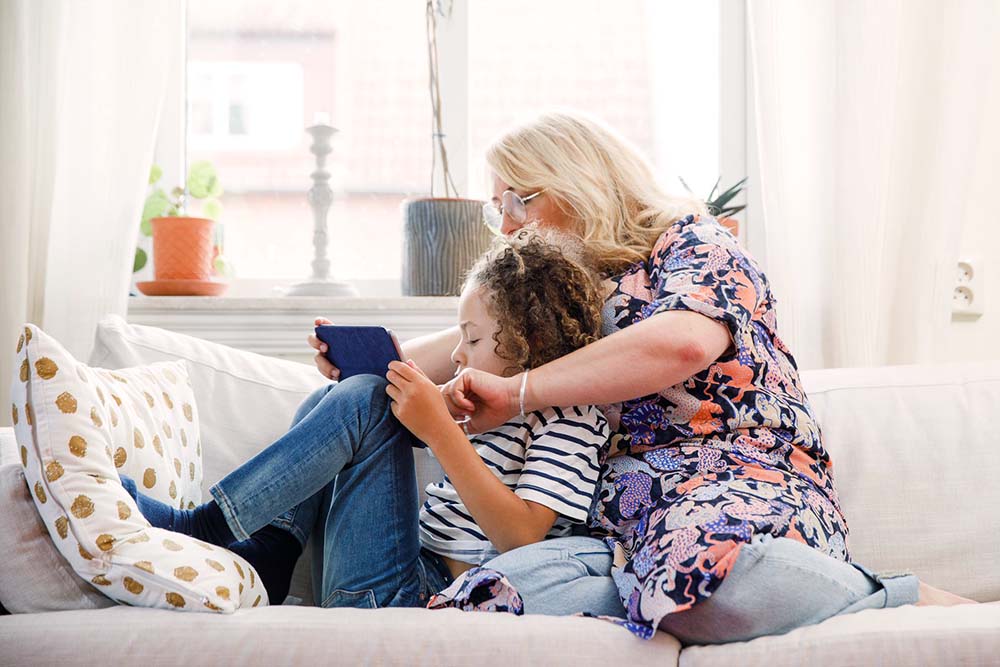4 ways to make maths fun for your children
Did you dislike maths as a child? You are not alone! Many of us remember maths classes in school as tedious, complicated, or something you just had to sit through. It can feel like the emphasis is placed on children sitting still, following directions, and filling out worksheets unrelated to their desires or curiosity. As a result, Maths becomes a chore rather than an exciting moment of learning.
However, we can change these negative feelings towards maths. Remember – everyone is a maths person. By helping our children experience maths as something exciting and interesting, their experience of maths will become more positive, and they will want to learn more about this universal language. And the best part of it; it doesn’t have to be complicated, and you can turn it into valuable shared time together.
We have listed four ways of how you can make maths more fun for children, and at the same time, build a stronger relationship.
1. Reassess your language – use positive words instead of negative ones when you talk about maths
Many adults have a terrible relationship with maths, which quickly gets transferred to the children and can create a bad start for the relationship between the children and mathematics. Children copy what adults do and say. If we start to talk more about maths positively with our children, they will eventually do the same. Even if you don’t like maths or find yourself comfortable with it – try to address it as fun and positive.
2. Find Math Magic every day – create fun moments that contain maths
You can easily integrate maths into everyday activities that you and your children enjoy doing together! It could be as simple as counting trees on a walk in the park or having your younger ones measure ingredients when cooking together. You could talk with your children about the shapes of objects in your home or take the time when brushing their teeth.
There is an infinite number of small moments during the day to highlight the maths in your everyday life. Use these moments to have fun together, and at the same time, learn more about maths.

3. You don’t have to do it alone – find digital tools and online resources that your child likes
As a parent, it can feel like you’re on your own trying to guide your children’s education and development at home. However, there are so many tools and resources that can help you! For example, screen time doesn’t have to be something terrible – you can turn it into something valuable and informative that builds their knowledge and skills.
As an example, plenty of YouTube videos incorporate counting and numbers, and there is a wide array of maths apps on the market. Explore them together with your child.
4. Turn screen time into valuable family time
We live in a time when screen time has become a natural part of our everyday lives as adults, and the same goes for our children. Screens are a good source for us to gain new knowledge, and instead of regarding screen time as something purely bad, you can use it to teach your children new skills while at the same time turning it into cosy family time.
By playing a maths game or watching a Youtube video on maths together, you build your relationship, get more out of the activity, and learn new things together. By showing an interest in what your children enjoy doing with their screens, you show them that you care about something that matters to them. For example, by playing a maths game together, you can help your children understand how they can apply their new earned maths skills in real life, giving them the possibility to easier apply their knowledge from the screen to their real life. So, snuggle up together on the sofa and enjoy some shared screen time – it’s more fun than you think!

We can help you – Count on me! uses Game-Embedded Teaching to improve children's maths learning.
By packaging something that sometimes feels boring (maths) into something that children enjoy (a gaming adventure), we make screen time both educational and entertaining in equal measure. The exercises in Count on me! adapt to your child’s knowledge and previous maths skills, ensuring that they are always on the right difficulty level. And the best part of it all – you can enjoy the maths adventure together!